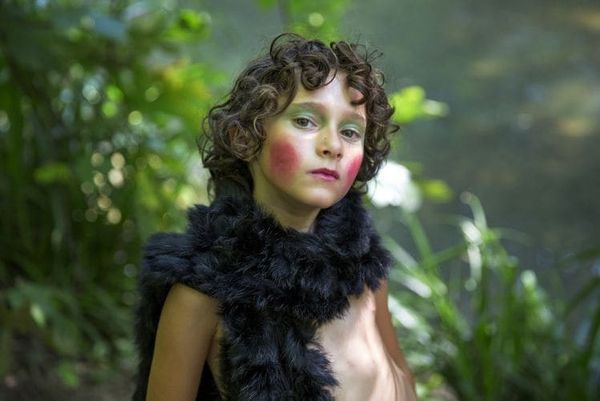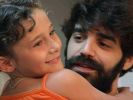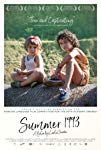Eye For Film >> Movies >> Summer 1993 (2017) Film Review
Summer 1993
Reviewed by: Amber Wilkinson

Childhood is a time of resistance and resilience in Carla Simón's autobiographical Summer 1993. She takes a child's eye view of the world to tell the story of Frida (Laia Artigas), a six-year-old whose life in Barcelona is upended when she is orphaned with the death of her mother. What follows is a world of whispered conversations not intended for small ears, as Frida's uncle Esteve (David Verdaguer) and aunt Marga (Bruna Cusí) take custody of her, moving her to their house in the countryside with her younger cousin Anna (Paula Robles).
Because Simón presents the world as Frida sees and hears it, we only learn about her parents obliquely, this helps the writer/director to show the way that children can be affected by prejudices and attitudes even when they have no fundamental understanding of what is happening. There's a freewheeling naturalism to Simón's approach that captures the sense of endless summers in a child's world, as she allows the small moments of play to take centre stage. The back and forths between Frida and Anna are particularly delightful, capturing childhood logic without feeling forced.

While Frida is frequently shown manifesting her unfocused grief as anger - with Simón non-judgmentally showing the sometimes unpleasant the consequences for all concerned - there is also a sense of the wonder of childhood. This is a place where magic and religious belief amount to pretty much the same thing and where you can think by flashlight. The film - which was Spain's nomination for the Foreign Language Oscar last year - wears its story lightly. Even when Simón is dealing with heavier themes her focus is on Frida and her emotions. Occasionally languid, but never less than lovely, Simón has crafted a memorable debut, that could easily mark the start of a long career for its young star Artigas.
Reviewed on: 13 Jul 2018


















